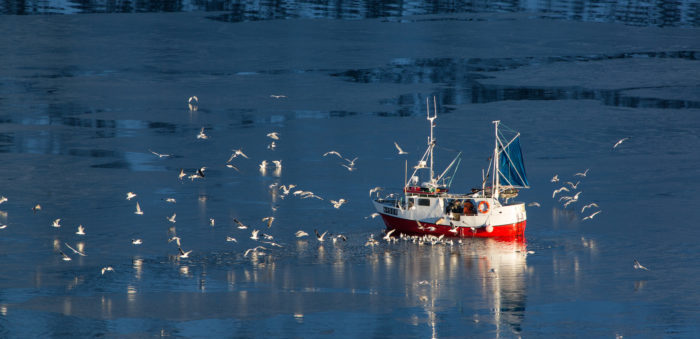The UK’s Environment Secretary, George Eustice, reported that British firms exporting their fish out of the country will experience some friction after the post-Brexit transmission period.
Specifically, the Environment Secretary stated that companies may need to fill in health and catch certificates when selling into the EU’s market, yet he supported that the UK has a ‘strong hand’ over access to its fishing waters in a deal with the EU.
The UK asks for access to its fishing waters for EU vessels to be negotiated on an annual basis, as it is already happening with the agreement to the bloc’s existing deal with Norway. Yet, BBC reports that the EU “uphold” existing access to British waters for vessels from member states, to avoid “economic dislocation” for their fishermen.
Concerning the trade relationship between the UK and the EU, in early February ECSA insisted that it will be more beneficial for both EU and UK, to remain an integrated and seamless shipping centre. However, Mr Eustice stated that European vessels may experience a reduced access to British waters adding that it was too early to talk about what the UK would provide.
Following Brexit, now that the UK left Europe, Mr Eustice noted that there will be an increased administration for those exporting to the EU. This means that exporters will need to export health certificates and catch certificates, for instance.
Yet, until the end of 2020, the fishing industry will be governed by the EU’s Common Fisheries Policy (CFP), meaning that still fleets are able to access to each other’s waters, excluding the first 12 nautical miles out from the coast.
Concluding, Mr Eustice noted that the UK has increased its patrols in UK waters to enforce access to its waters, also by hiring vessels from private companies and deciding not to mothball some old Royal Navy boats at the end of their service.






























































